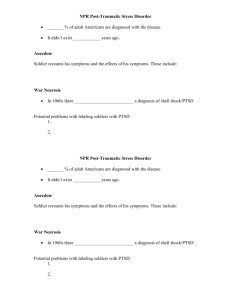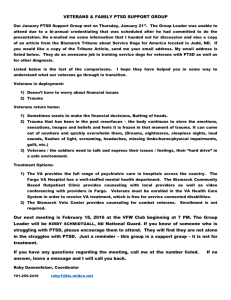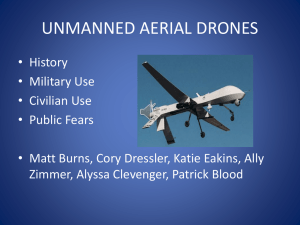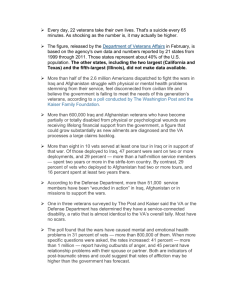Cline Isabel Cline Ms. Richmond AP English: Language and
advertisement
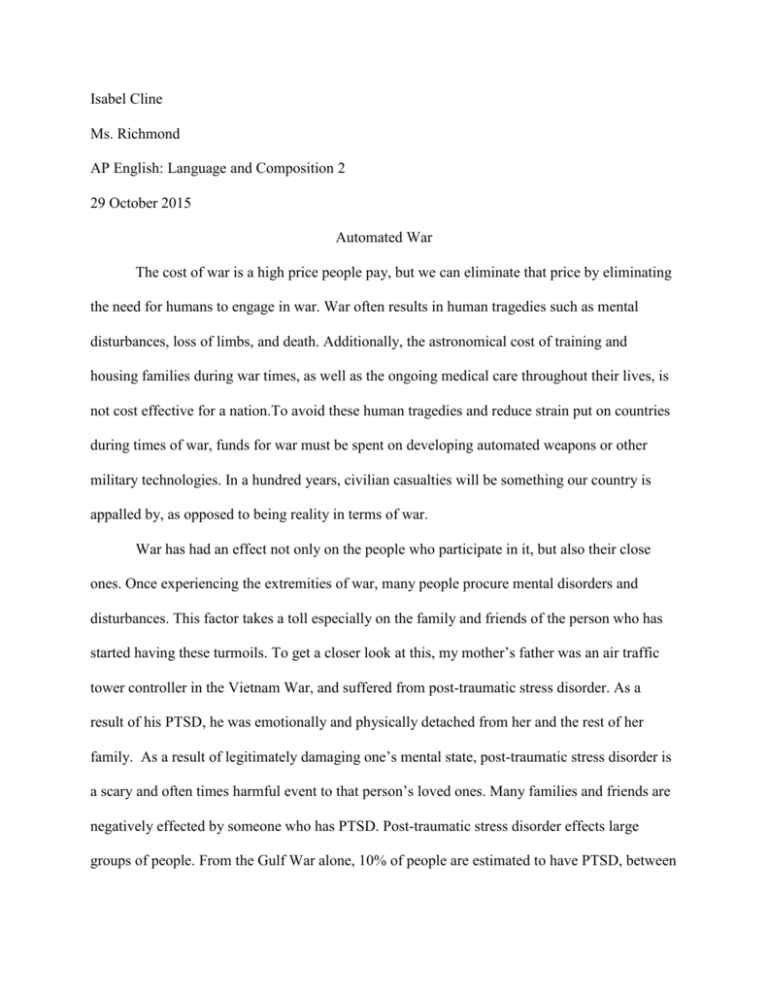
Isabel Cline Ms. Richmond AP English: Language and Composition 2 29 October 2015 Automated War The cost of war is a high price people pay, but we can eliminate that price by eliminating the need for humans to engage in war. War often results in human tragedies such as mental disturbances, loss of limbs, and death. Additionally, the astronomical cost of training and housing families during war times, as well as the ongoing medical care throughout their lives, is not cost effective for a nation.To avoid these human tragedies and reduce strain put on countries during times of war, funds for war must be spent on developing automated weapons or other military technologies. In a hundred years, civilian casualties will be something our country is appalled by, as opposed to being reality in terms of war. War has had an effect not only on the people who participate in it, but also their close ones. Once experiencing the extremities of war, many people procure mental disorders and disturbances. This factor takes a toll especially on the family and friends of the person who has started having these turmoils. To get a closer look at this, my mother’s father was an air traffic tower controller in the Vietnam War, and suffered from post-traumatic stress disorder. As a result of his PTSD, he was emotionally and physically detached from her and the rest of her family. As a result of legitimately damaging one’s mental state, post-traumatic stress disorder is a scary and often times harmful event to that person’s loved ones. Many families and friends are negatively effected by someone who has PTSD. Post-traumatic stress disorder effects large groups of people. From the Gulf War alone, 10% of people are estimated to have PTSD, between Cline 2 6% and 11% from war in Afghanistan, and a range from 12% to 20% for those stationed in Iraq (The Nebraska Department of Veterans’ Affairs). These statistics display how much mental strain is put on military personnel when they are engaged in war. Having human beings being this harshly effected by these traumatic events can surely be prevented with new technologies being created. Though one may think that the money spent for the U.S. military goes to the technology created for wartime affairs, the government is also paying for soldier’s training and the housing of the families of those in the military force. In 2013, the Department of Defense gave $90 billion for pay, food, and housing allowances for those in the military and their families. In addition to this, $16 billion was given to active members for their pensions when they retire and become veterans (Congressional Budget Office). Giving money to our military and their families is a positive act, though it may not seem favorable when many of these war veterans come back home emotionally distressed, and inflict their unfortunate state on the others around them. Many people of current day are opposed to the use of drones in warfare. Drones have the potential to not be able to distinguish between enemies and innocent civilians, as demonstrated in Pakistan and Yemen where mechanized weapons have been responsible for civilian deaths (Global News). In addition to this, there is the potential that enemies will be able to gain possession of the drones used by the United States. Despite this, it is important to note that United States soldiers are already killing civilians, such as the incident involving the Doctors Without Borders’ Trauma Center in Kunduz, Afghanistan, when U.S. pilot manned aircraft bombed innocent people (Doctors Without Borders). The downsides to using drones in warfare are equal, if not less, to using actual humans. 100 years from now, the government will have achieved solving the ongoing occurrence of war veterans acquiring mental disorders from the Cline 3 traumatic experiences they went through. No human should have to experience such harsh extremities, that is why military technologies will be the weapons in wars. Cline 4 Works Cited “What is PTSD?” Post Traumatic Stress Disorder. The Nebraska Department of Veterans’ Affairs, 2007. Web. 17 Oct. 2015. “Costs of Military Pay and Benefits in the Defense Budget.” Congressional Budget Office. Congressional Budget Office, 14 Nov. 2012. Web. 18 Oct 2015. Logan, Nick. “Drones: The Good, the bad and the ugly.” Global News. Global News, 2 Dec. 2013. Web. 18 Oct 2015. “Afghanistan: MSF Staff Killed, Hospital Partially Destroyed in Kunduz.” Doctors Without Borders. Doctors Without Borders, 02 Oct. 2015. Web. 18 Oct. 2015.
